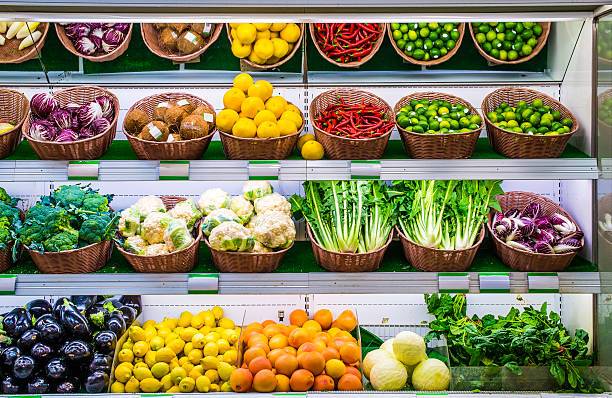- How to Store Fruits
& Vegetables to Increase Their Shelf Life
Hello,
Your
favourite girl is baaaaaaaack. Today we are going to quickly look at how we can
store our fruits and vegetables to prolong their shelf life.
Eating
fruits and vegetables is an essential part of a healthy diet. However, it can
be challenging to keep produce fresh for an extended period, which can lead to
waste and additional expenses.
Without
much ado, let's look at tips on how to store fruits and vegetables to increase
their shelf life and reduce waste.
- Store in
the right place - Different fruits and vegetables have different storage
requirements. For example, leafy greens and herbs should be stored in the
refrigerator, while root vegetables like potatoes and onions can be kept
in a cool, dry place. Fruits like bananas, apples, and avocados should be
kept at room temperature.
- Keep them
dry - Moisture can cause fruits and vegetables to spoil quickly, so it's
important to keep them as dry as possible. Remove any excess moisture from
fruits and vegetables before storing them, and avoid washing them until
you're ready to use them.
- Use proper
containers - Proper containers can help to keep fruits and vegetables
fresh for longer. Use airtight containers or plastic bags with holes punched
in them to allow for airflow. Avoid storing produce in the grocery store
plastic bags, as they can trap moisture and lead to spoilage.
- Don't store
together - Fruits and vegetables release different gases as they ripen,
which can cause them to spoil more quickly if stored together. Keep fruits
and vegetables separate to avoid premature spoilage.
- Use the
crisper drawer – Most of us have this compartment in our fridges but don’t
use it for its intended purpose (it's me, I’m most of us T-T). A crisper
drawer designed to keep fruits and vegetables fresh. Set the humidity
level too high for leafy greens and low for fruits and vegetables like
apples and carrots.
- Store
ethylene-sensitive produce separately - Some fruits and vegetables, like
bananas and tomatoes, produce high levels of ethylene gas.
Ethylene-sensitive produce, such as leafy greens and broccoli, should be
stored separately to prevent premature ripening and spoilage.
Storing
fruits and vegetables properly is essential for increasing their shelf life and
reducing waste. By following these simple tips, you can enjoy fresh, delicious
produce for longer periods and save money in the process. Remember to keep
fruits and vegetables dry, use proper containers, store them in the right
place, and keep them separate to ensure the longest possible shelf life.
Till next time
Love
Heidi




No comments yet
Be the first to share your thoughts!